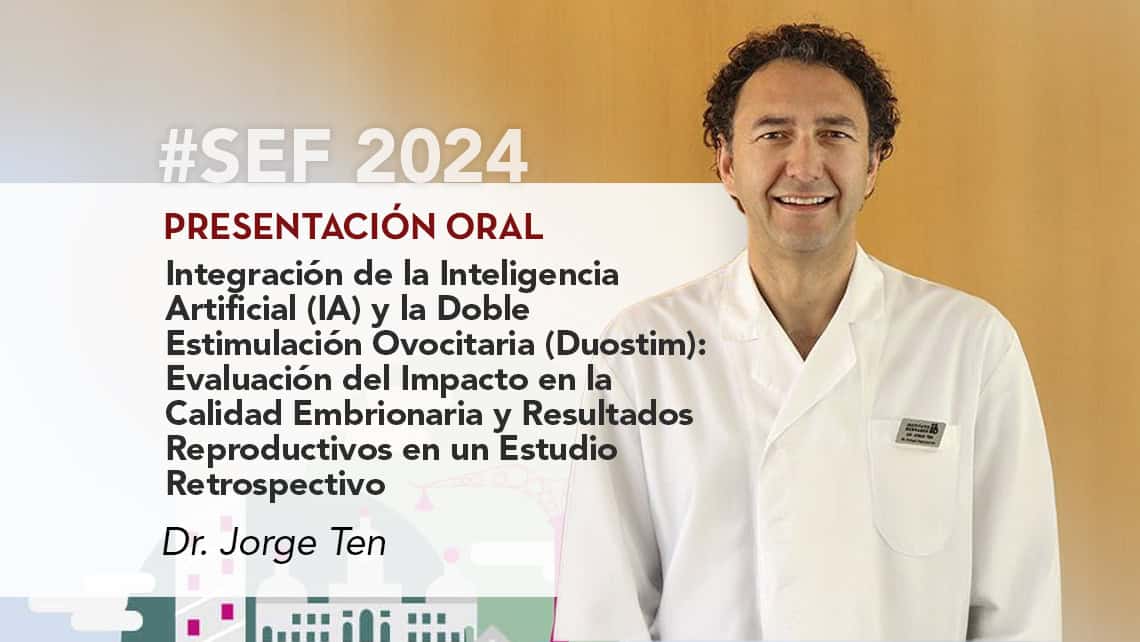A study by Instituto Bernabeu determines that double ovarian stimulation does not affect embryo quality
May, 2nd 2024

- Dr Jorge Ten will present a study on the integration of AI and Double Oocyte Stimulation (Duostim) at the SEF Congress
- “This study represents a remarkable milestone that will help to better understand the embryonic behaviour and safety of clinical ovarian stimulation treatments”
The Spanish Fertility Society (SEF in Spanish) has selected for its congress a pioneering study by Instituto Bernabeu, led by Dr Jorge Ten, on the integration of Artificial Intelligence (AI) and Double Oocyte Stimulation (Duostim). The aim, explains Dr Ten, is to analyse the convergence of these two cutting-edge innovations in reproductive medicine.
During the study, the Instituto Bernabeu team applied the AI tool CHLOE-EQ to detect possible differences in embryo development up to blastocyst (including chromosomal alterations) depending on whether the patient is in her first or second ovarian stimulation.
To date, there have been no studies comparing embryo kinetics and embryo quality in Duostim treatments using AI. “This study represents a remarkable milestone that will help to better understand embryo behaviour and the safety of clinical ovarian stimulation treatments,” according to Dr Jorge Ten.
Not too long ago it was unthinkable to perform two ovarian stimulations in a row (follicular and luteal phase) on the same patient in order to obtain a greater number of eggs and better clinical results. Today, it is routinely performed in clinical practice and an increasing number of patients are benefiting from it. However, there is little research comparing the embryo kinetics, quality and possible chromosomal alterations (ploidy) of the two stimulations.
The study results demonstrate that Duostim has no adverse impact on embryo quality or euploidy, as assessed by both AI and embryologists. Furthermore, AI is presented as a valuable tool to evaluate therapeutic protocols and their impact on embryo quality, highlighting the positive synergy of these innovations in reproductive medicine.
These results are important as they imply greater safety in the use of the Duostim protocol. “This protocol benefits more and more patients, as it allows two stimulations to be performed in the same ovarian cycle and to obtain a higher oocyte yield in patients with poor reproductive prognosis, such as women of advanced maternal age and/or with low ovarian reserve,” says the doctor.
